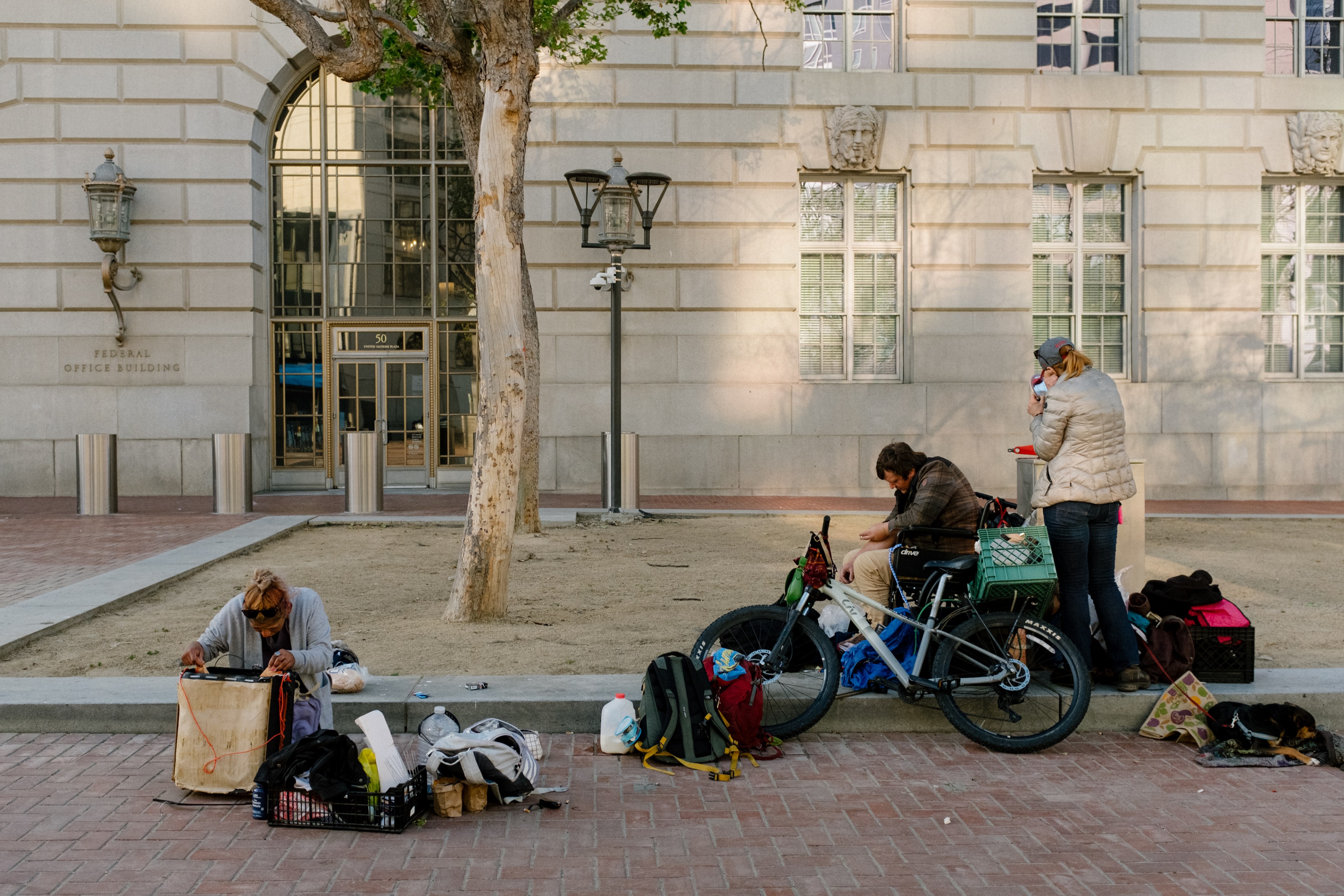More people were reported overdosing on drugs in Downtown’s United Nations Plaza than on any other block in San Francisco during the past five years, according to fire department data reviewed by The Standard.
Last year, the San Francisco Fire Department responded to 545 calls reporting possible overdoses around U.N. Plaza—including the 1100 block of Market Street, Seventh and Market streets and the other intersections bordering the drug-plagued square—and fielded 307 calls there in the first seven months of this year.
Since at least 2018, the 1100 block of Market Street running along the south side of the plaza had more than twice as many possible overdose calls as any other address in the city.
The fire department’s data may include some medical emergencies initially reported as overdoses but ultimately caused by other underlying health conditions, the department clarified in a statement. The numbers don’t include overdoses that were dealt with by private ambulance companies or those that were reversed by private citizens or nonprofit workers.
The city is on pace for a record number of fatal overdoses in 2023, counting over 400 lives lost to drugs in the first half of the year.
Data from the Chief Medical Examiner’s Office shows that at least 33 people have died of overdoses within a one-block radius of the plaza since Jan. 1, 2020.
Heart of the City
The brick plaza in the heart of San Francisco is two blocks away from the gold Beaux Arts dome of City Hall and home to the fourth-busiest BART station in the Bay Area. For decades, it has been a hangout for people suffering from mental illness and addiction.
Back in 2004, the New York Times reported that the plaza’s fountain, created to symbolize the earth’s continents and oceans, had become “a public toilet, shower, washing machine, brothel, garbage can and drug market all in one.”
In recent months, elected officials have ramped up efforts to make the plaza more welcoming, announcing plans to turn the area into a hub for outdoor activities such as skateboarding, pingpong and chess. In August, the city will host a four-day carnival on Fulton Street next to the plaza with a 100-foot super slide, a spinning teacup ride and a Ferris wheel.
On Sundays and Wednesdays, the plaza is home to the Heart of the City Farmers Market, where vendors say they’ve gotten all too used to people buying and ingesting illicit substances.
Poli Yerena, owner of Yerena Farms in Watsonville, said he’s been selling strawberries at the farmers’ market for 34 years and hasn’t seen much of a change for the better or worse. He recalled bringing his children to the market when they were young to teach them about the dangers of drug use.
“It was like a teaching experience,” Yerena said. “You see people for one or two years, and they disappear. They die.”
Donna Hilliard, executive director of the nonprofit Code Tenderloin, which has many outreach workers stationed in the area, said she was not surprised by the overdose data.
Hilliard said that a single ambassador has performed over 20 overdose reversals just on the corner of Seventh and Market Streets. Powerful new man-made drugs appearing on San Francisco’s streets are increasingly resistant to overdose reversal medications. She said emergency workers sometimes have to administer four doses to bring people back to life.
But drug-related tragedies are nothing new in the square. “This has been going on for years and years, and people haven’t really paid attention,” Hilliard said.
Larry Smith, who lives on the streets, told The Standard that people without homes come to the plaza because they don’t have anywhere else to go. He said in recent months, the city has initiated a crackdown. He’s noticed an uptick in police, park rangers and nonprofit workers who are tasked with pushing him and other homeless people out of the area.
“We don’t want to hang out here, but if we do it anywhere else, we go to jail,” Smith said. “They tell all the people in the offices and the suits that they’re helping us, but they’re not.”
At the same time, officials are under pressure to respond to growing public anger about the disorder on the streets. During a public hearing at the plaza in May, Mayor London Breed was questioned about her plans to address the city’s drug and homelessness crises, but the meeting was cut short by hecklers.
In a statement, Breed’s office underscored the city’s investments in medically assisted treatment for drug addiction and outreach teams as well as an increased effort by law enforcement officials to arrest drug dealers.
City officials opened a Drug Market Agency Coordination Center earlier this summer to encourage collaboration between police, public health officials and the Department of Emergency Management. The health department said in a statement that it has made sizable investments in behavioral health services and is working to make treatment more accessible while training thousands of social workers, volunteers and ordinary citizens to reverse overdoses.
Last year, the city opened a controversial facility in the plaza called the Tenderloin Center, where people could use drugs under medical supervision and get referrals to housing and health services or simply take a shower. But the site shuttered last December amid concerns about the impact on the surrounding community and criticism that it had failed to connect many people to drug treatment.
A city dashboard shows that staff at the site reversed 333 overdoses while it remained open.
In the meantime, the bi-weekly farmers’ market, which has operated at the plaza since 1981, remains a bright spot. Longtime vendors said they are hopeful, for the sake of their businesses, that the city’s revitalization efforts for the square can work.
Mark Bartle, owner of the Two Dog Farm produce stall, said: “For two days a week, this is the nicest place in the Tenderloin.”
Noah Baustin contributed data analysis to this report.
